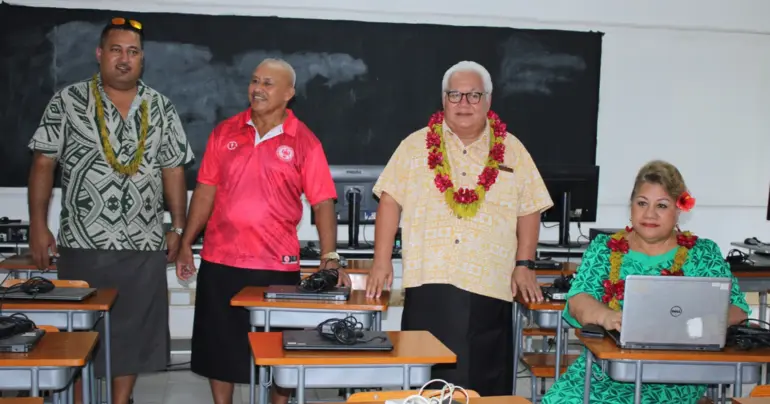Indigenous knowledge, women key to making agriculture climate friendly: IPCC
 By Sapeer Mayron
•
14 August 2019, 1:00PM
By Sapeer Mayron
•
14 August 2019, 1:00PM
A new report from the United Nations body responsible for climate research finds that indigenous knowledge will be a key to better management of agriculture land to mitigate the impact of climate change.
A new report from the Intergovernmental Panel on Climate Change (I.P.C.C.) says indigenous knowledge must form part of any adaptation and mitigation measures taken in response to climate change.
A draft of the Special Report on Climate Change and Land was released last week, covering issues such as the interaction between land and climate, desertification, land degradation and food security.
Indigenous knowledge has not been used consistently in adaptation efforts, the report states, in a finding that refers to the I.P.C.C.'s previous research.
“The Special Report on Global Warming of 1.5 °C confirms the effectiveness and potential feasibility of adaptation options based on [indigenous knowledge] but also raises concerns that such knowledge systems are being threatened," the report states.
Where formal data collection is limited, indigenous knowledge can help science understand climate change, the authors conclude.
Research has also demonstrated “strong correlations” between meteorological data and indigenous knowledge.
The report cites examples of indigenous knowledge presenting opportunities for sustainable land management such as the "intercropping" of rice with bananas or cassava in Indonesia
“Respect for indigenous and local knowledge is both a requirement and an entry strategy for participatory climate action planning and effective communication of climate action strategies,” the report states.
Empowering women could also help manage land sustainably and answer issues of food security, according to the report's authors.
The Food and Agriculture Organisation, has found women represent 43 per cent of the agriculture labour force in developing countries. That number is growing in all developing regions (except East and Southeast Asia).
Such a significant proportion of women represents an opportunity to make positive changes in agriculture to promote gender equality.
Collective action and the involvement of women in farming households, including widows, has helped drive more efficient use of crops, planning and financial management, the authors say.
Addressing climate change impacts on land will involve sustainable land use, and that might mean buying or leasing land. The report addresses land tenure systems, and said they will have implications for both adaptation and mitigation.
“Large-scale land acquisitions are an important context for the relations between tenure security and climate change, but their scale, nature and implications are imperfectly understood,” the report states.
“There is medium confidence that land titling and recognition programs, particularly those that authorise and respect indigenous and communal tenure, can lead to improved management of forests, including for carbon storage.
“Strong public coordination (government and public administration) can integrate land policy with national policies on adaptation and reduce sensitivities to climate change.”
But there are significant knowledge gaps on land use policy, and there needs to be more interdisciplinary research on the matter, the report says,
That gap partly comes from how long it takes to evaluate the social and economic impact of changes to land use.
“Significant investment is needed in monitoring, evaluation and assessment of policy impacts across different sectors and levels,” the report says.
Samoa, as with much of he developing world, agriculture is dominated by smallholder farmers.
The report states farmers need to be educated and incentivised to allow their land to regenerate.
“Without education and incentives… smallholder farmers tend to generate income through inappropriate land management practices, engage in agricultural production on unsuitable land and use fertile soils, timber and firewood for brick production and construction and secondly engage in charcoal production (deforestation) as a coping mechanism (increasing income) against food deficiency.”
The report suggests that a highly successful “graduation approach” to farming, which was trialled in six countries and is being used in nearly 40 countries has had positive results on income and food security.
“The graduation approach layers and integrates a series of interventions designed to help the poorest: consumption support in the form of cash or food assistance, transfer of an income generating asset (such as a livestock) and training on how to maintain the asset, assistance with savings and coaching or mentoring over a period of time to reinforce learning and provide support.”
Healthy diets, less food loss or waste, food demand management and agriculture innovation on food security are all important interventions.
And while there are barriers across all areas, and knowledge gaps on which policies best support demand management for food, there is “robust evidence and robust agreement that changes in household wealth and parents’ education can drive changes in diet and improvements in nutrition.”
The chapters in the report are subject to correction and may change, the I.P.C.C states.
Tags
 By Sapeer Mayron
•
14 August 2019, 1:00PM
By Sapeer Mayron
•
14 August 2019, 1:00PM











